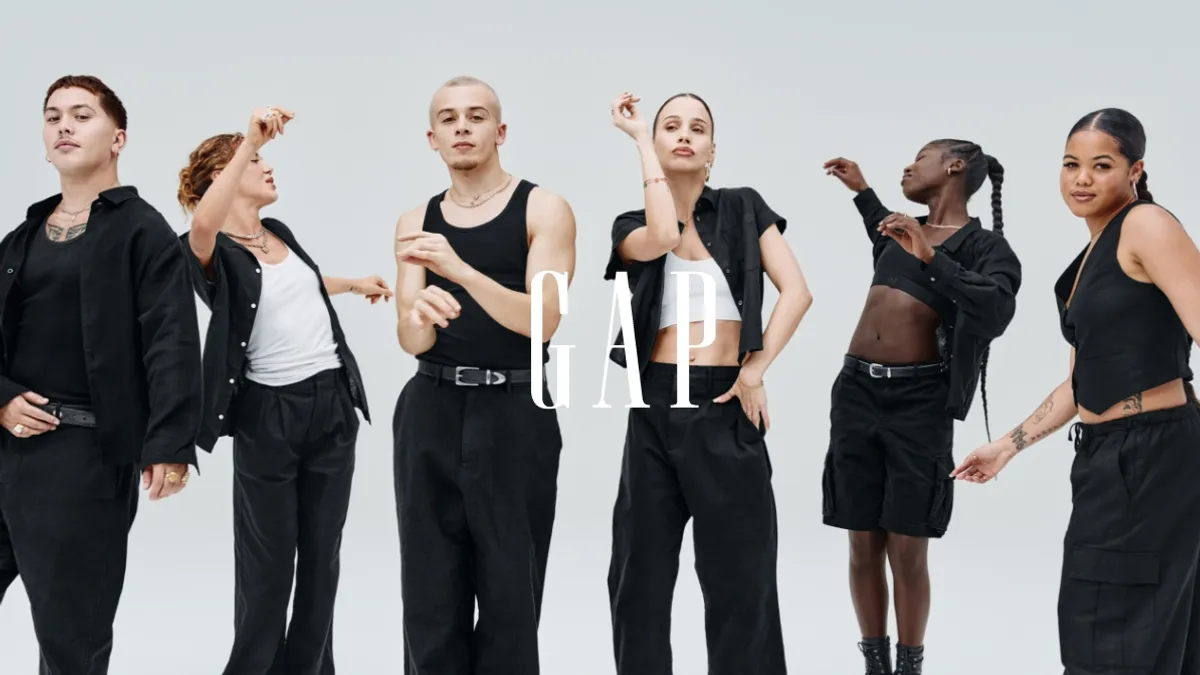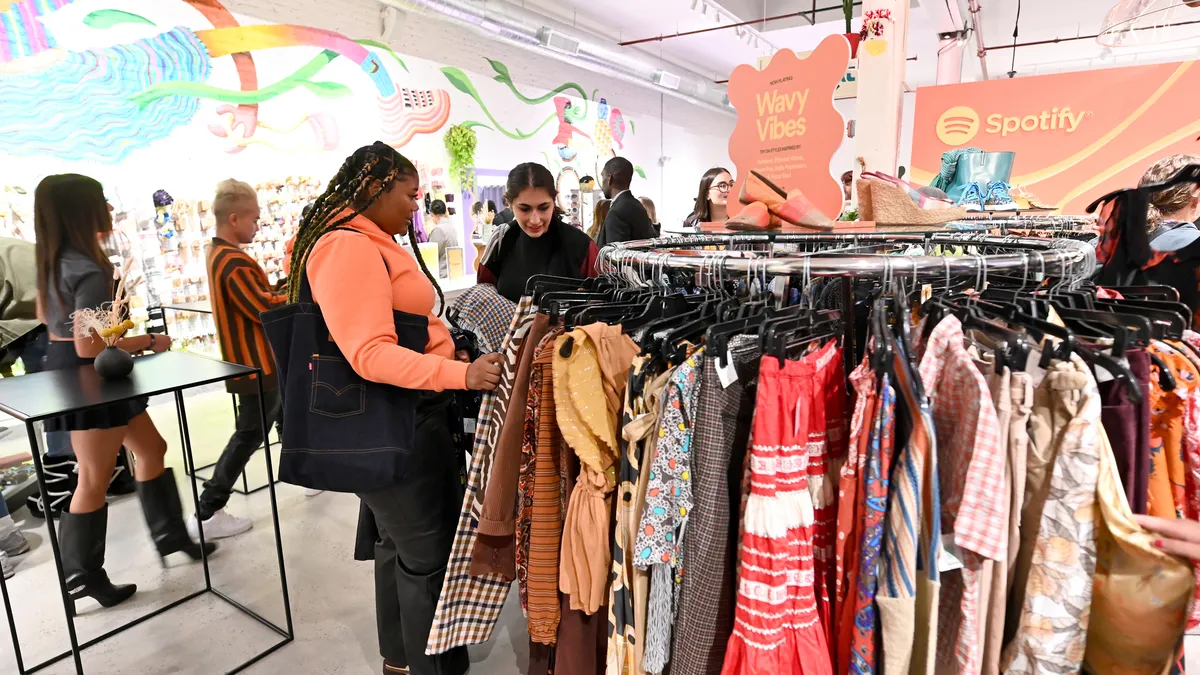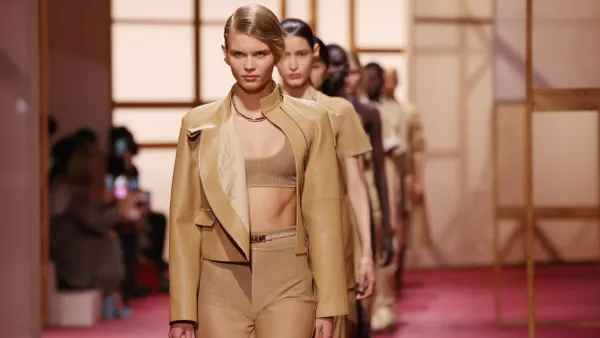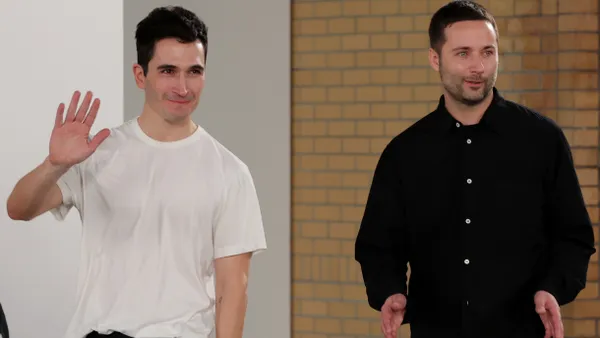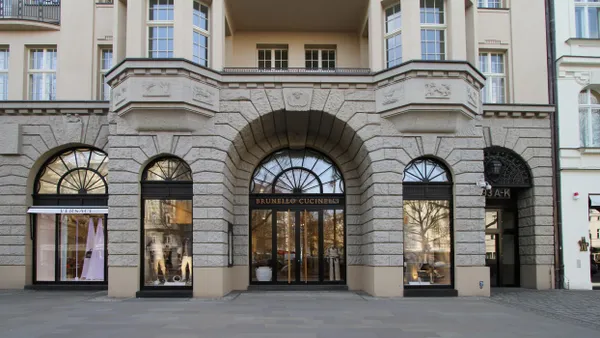Dive Brief:
-
With the aid of improved assortments and an extra sales week compared to last year, Gap Inc. on Thursday reported that Q4 net sales rose 1.3% to $4.3 billion; comps were flat, stores sales rose 4% and e-commerce fell 2%, according to a filing with the Securities and Exchange Commission.
-
By brand, Old Navy net sales rose 6% to $2.29 billion as comps rose 2%; Gap net sales fell 5% to $1 billion as comps rose 4%; Banana Republic net sales fell 2% to $567 million as comps fell 4%; and Athleta net sales fell 4% to $419 million as comps fell 10%.
-
Gross margin expanded by 450 basis points year over year to 38.8%, with merchandise margin up by 490 basis points. The company swung into the black, with $185 million in net income versus a $273 million net loss a year ago.
Dive Insight:
When it comes to Gap Inc.’s turnaround, all eyes are on CEO Richard Dickson, who arrived in July last year from Mattel, just when the toy maker’s decades-old Barbie brand was under the spotlight of a blockbuster summer movie.
“We believe Mr. Dickson's prior experience in reinvigorating brands including Barbie, Hot Wheels, and Fisher-Price provides [Gap Inc.] with a head start in both formulating and implementing its playbook to drive improvements across the business,” Jefferies analysts led by Corey Tarlowe said in emailed comments. “Therefore, we expect investors to increasingly focus on Mr. Dickson's approach to improving brand relevance and the company's overall product offering.”
Dickson himself noted renewed strength at Old Navy, the company’s powerhouse, and Gap, its iconic but struggling brand, and said both took market share in women’s apparel in the quarter. Gap in particular is “a pop culture brand that truly does more than sell clothes, and today, we're really moving again,” he said.
Banana Republic and Athleta were another story. Banana Republic is “not where we need to be,” he said, adding that this year the label will be focused “on go-to wardrobe pieces and BR Classics like sweaters, Oxford's suit separates, and khaki, those products that Banana Republic has been known for and will be again. We're encouraged by the brand aesthetic but it will take some time to get this right and unlock the potential of this business.”
Athleta is undoing years of merchandising missteps, but is now heading in the right direction under new brand chief Chris Blakeslee, he said. Blakeslee arrived from Alo Yoga last year.
“We have a really significant opportunity with this important brand,” Dickson said. “‘The Power of She is a compelling brand platform. And we know the Athleta brand resonates with consumers, but our missteps in executing product, marketing, experience has ultimately weighed heavily on the performance of the brand in recent years.”
Dickson, along with several analysts, noted that financial discipline — including a 16% year-over-year inventory reduction, cash balance build-up of $1.9 billion, and free cash flow of over $1.1 billion and lower freight costs — have helped expand margins, profitability and working capital. That discipline will continue this year, he said.
“Our attention in 2024 remains on controlling the controllables — gross margin recovery, expense discipline, inventory management and maintaining a strong balance sheet, while we continue the foundational work related to our brands as we aspire to drive relevance and revenue,” he said.
But there is only so much the company can control, and BMO Capital Markets Managing Director Simeon Siegel in emailed comments said he expects Gap Inc. to “remain a revenue shrinker facing external pressures beyond its control.” That’s in part because Old Navy, already by Siegel’s count the second-largest apparel seller in North America, behind Nike, may have reached its peak. And, at Banana Republic, because consumers are shying away from higher-priced apparel, according to GlobalData Managing Director Neil Saunders.
Saunders joined other analysts in observing that, as Jane Hali & Associates analysts said in their client note, the assortments are “still lagging in terms of consumer interest.”
Still, as with the previous quarter, the company in the period moved in the right direction, providing “some hope that Gap is starting to stop its business shrinking,” Saunders said in emailed comments.
“Overall, Gap is in a better place than it was a year ago,” he said. “Some modest improvements are coming through but, most of all, the energy and mood music have shifted. We think this heralds a lot of very positive changes to come. These will take time to deliver growth, but they will help stabilize the business in the year ahead.”



